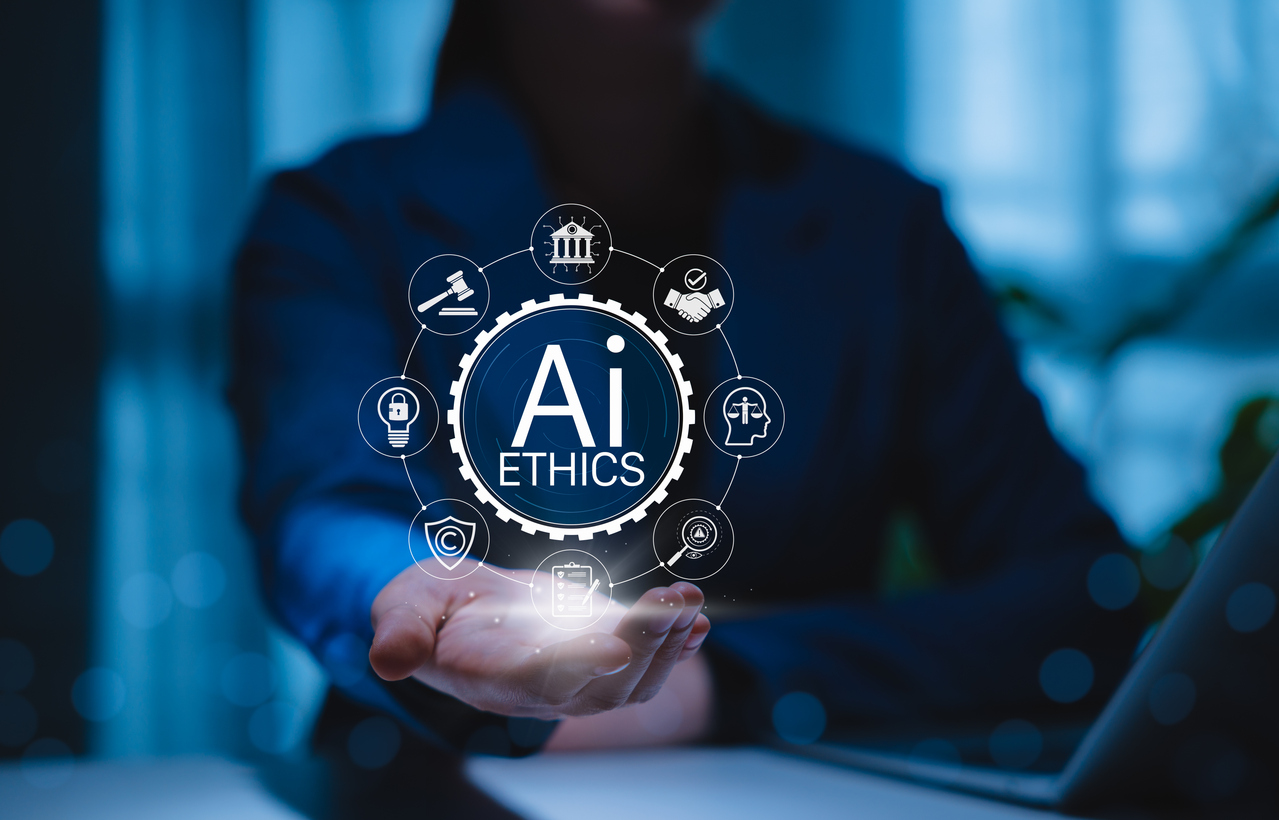Discover how Agentic AI supports ethical and sustainable sourcing by incorporating ESG criteria into vendor selection and vetting suppliers for risk.
Introduction: Why sustainability and ethical sourcing matters and how agentic AI can help
Procurement and sourcing professionals are in the frontline of the battle to conserve the world’s limited resources, reduce emissions and, increasingly, to ensure ethical best practices in the extended supply chain. Growing stakeholder expectations, the need to maintain brand reputation, and risk mitigation are mounting pressures alongside regulatory change. Consumers and investors want greater transparency and responsibility from businesses. Done right, sustainable and ethical sourcing can also lead to cost savings, improved supplier relationships, and competitive advantage.
The difficulty, however, is that sustainability and ethical considerations add another layer of complexity to the sourcing process. Consequently, artificial intelligence, and agentic AI in particular, will play an increasingly important role in sustainable/ethical sourcing.
What is agentic AI? And how specifically does it support ESG?
Agentic AI makes use of AI agents, which are essentially artificial intelligence entities designed to perform specific tasks autonomously or semi-autonomously. At its core, this technology is built on several key components, each of which can play a role in sustainable and ethical sourcing:
- Data gathering: Agentic AI starts by gathering information from various sources, such as sensors, databases, and user interfaces. This could involve analyzing text, images, or other forms of data to understand the situation.
Role in sustainable/ethical sourcing: Agents gather information from data feeds such as EcoVadis or carbmee that aggregate environmental, social and governance (ESG) data, plus news feeds, social media etc.
- Contextual Reasoning: Using a large language model (LLM), agentic AI analyzes the gathered data to understand the context, identify relevant information, and formulate potential solutions. For example, if the goal is to schedule a meeting, the LLM can analyze the text of emails and chat to identify attendees, available times, and the meeting’s purpose.
Role in sustainable/ethical sourcing: Taking this example, agentic AI could identify the need to comply with new environmental regulations and put together a compliance task force that includes sourcing and category managers, compliance officers etc.
- Planning: Agentic AI uses the information it gathered to develop a plan. This involves setting goals, breaking them down into smaller steps, and working out the best way to achieve them.
Role in sustainable/ethical sourcing: Agentic AI autonomously takes the ESG information it has gathered and further inputs (for example, minutes from the task force’s meetings) to set out a roadmap for compliance.
- Execution: Agentic AI then executes on the plan, without the need for human intervention. This could involve performing tasks, making decisions, or interacting with other systems.
Role in sustainable/ethical sourcing: Such a task could include identifying a shortlist of suppliers who not only meet the criteria for compliance but also exhibit the highest ethical standards, setting up a sourcing event, briefing the suppliers and reporting back on outcomes.
- Learning: Agentic AI also learns from the results of its action to adjust its plans and actions in the future. This continuous cycle of data gathering, reasoning, planning and execution enables agentic AI to learn and improve over time.
Role in sustainable/ethical sourcing: After the award decision, agents autonomously review outcomes and provide input for future events. For example, should more or fewer suppliers have been invited to bid? Which suppliers fell short of requirements? Which suppliers were not successful in the bidding process or getting on the shortlist, but might be options for future events should circumstances change?
Incorporating ESG criteria into vendor selection with agentic AI
Let’s dig a little deeper into the ESG criteria that organizations want to integrate into the supplier selection, evaluation and sourcing process.
Choosing the right suppliers for sustainable procurement requires a robust evaluation of their environmental impact, social responsibility, and ethical governance (ESG) practices. The main areas of focus are:
Environmental impact
Companies should assess how suppliers manage their environmental footprint, in particular greenhouse gas emissions and carbon reduction strategies. This is especially important as in some industries Scope 3 emissions, i.e., emissions in the supply chain, account for more than 80 percent of a company’s total environmental footprint. Other areas of concern include energy efficiency and renewable energy use, waste management and recycling initiatives, and compliance with environmental regulations. The data is a mix of structured and unstructured data (such as written reports about suppliers’ efforts towards sustainability, including the implementation of eco-friendly practices, and participation in environmental initiatives or certifications.) Agentic AI, which analyses such information using LLMs, is especially well adapted to this task.
Social responsibility
For legal reasons and also to protect their brand reputation, companies want to work only with suppliers who demonstrate a commitment to social responsibility by upholding ethical business practices including fair wages, safe working conditions, and human rights compliance; ethical sourcing of materials; diversity and inclusion; and community engagement. Collaborating with socially responsible suppliers further enhances a company’s reputation for contributing to positive societal change.
Again, agentic AI can not only take into account ratings from organizations such as EcoVadis but also analyze reports from diverse sources like the Extractive Industries Transparency International (EITI), which promotes the open and accountable management of oil, gas and mineral resources, or UNICEF and ILO studies to combat the exploitation of child labor.
Governance
Regulatory compliance and governance standards are key supplier selection criteria in sustainable/ethical sourcing. Companies should evaluate suppliers’ adherence to reporting frameworks (such as CDP, ISO 14001, the GHG Protocol, CSRD, CSDDD, CBAM etc.) They should also examine suppliers’ performance on data transparency in supply chain operations as well as anti-corruption, anti-bribery and other fair business practices, robust cybersecurity and data protection standards and financial reporting to international standards.
Researching and analyzing the vast amounts of largely unstructured data places a massive administrative burden on companies that rely on outdated manual methods and even those that have introduced some degree of automation. Agentic AI can help to search through all this complex information, analyze it, and summarize it into human-readable, audit-ready narratives. It can also flag inconsistencies, missing values, or anomalies across time periods or between business units, automatically prompting a human reviewer or initiating a new data collection cycle.
Extending the scope of ESG
Agentic AI can help organizations to go beyond the traditional scope of ESG in sourcing to investigate circular economy opportunities, for example by identifying suppliers that use recycled or biodegradable materials, offer take-back programs for product end-of-life management, and which reduce waste by developing innovative packaging solutions that use recycled materials.
It can also combine ESG objectives with other goals such as risk management and mitigation, and cost reduction. Such complex tasks are beyond the scope of human capabilities, and even beyond those of traditional AI. However, sourcing professionals must maintain oversight and governance frameworks and guardrails must be in place to ensure that the agents do not exceed non-negotiable values in supplier selection.
The JAGGAER One platform is already streamlining sourcing processes through the intelligent automation of RFx creation, bid analysis, negotiation support, and award recommendations that consider ESG alongside other dimensions. The current state-of-the-art is the JAI Copilot, which accelerates the sourcing process. Next year, autonomous agents will be introduced with JAI Autopilot, which is fully integrated with the JAGGAER One platform.
Autonomous supplier vetting for sustainability risks
Automating the process of vetting suppliers for sustainability risks can significantly reduce the time and resources required for manual reviews, especially for large and complex supply chains. With agentic AI the process will increasingly take place without human intervention, so it will become even more efficient. Agentic AI can provide continuous monitoring and alerts, enabling quicker responses to potential risks. And it is scalable: autonomous systems can handle a large volume of suppliers and data points, making it easier to monitor and manage sustainability risks across the entire supply chain
Another key benefit is objectivity. Agentic AI-powered systems can analyze data more objectively than humans, potentially reducing bias in assessments. That said, human oversight is still needed, as the data on which the AI is trained may itself be biased.
Summary of the benefits of using agentic AI for sustainable sourcing
Agentic AI improves efficiency in sourcing while also supporting sustainable practices. It’s a step up from traditional AI because it (in part at least) acts autonomously and can monitor the supplier landscape continuously.
Benefits include:
- Speed and efficiency: automating data analysis and supplier identification, agentic AI can significantly shorten the time it takes to find and onboard new suppliers that meet all sustainability/ethical requirements.
- Optimized supplier selection: agentic AI can assess suppliers based on a wide range of criteria, including price, quality, delivery time, and risk, as well as ESG criteria.
- Autonomous set-up and execution of sourcing events such as auctions, also for complex categories.
- Reduction of human bias in vendor selection and ensuring transparency in decision-making.
- Real-time data analysis for better decisions in the vetting of ethical and sustainable suppliers.
- Real-time monitoring of actual supplier performance across multiple ESG and other dimensions.
- Fast responses and alerts as new ESG risks emerge.
- Transparency and communication: by providing better insights, agentic AI can help build stronger, more collaborative relationships with suppliers on a common communication platform.
- Innovation: agentic AI helps uncover sourcing opportunities to implement advances in sustainability, such as circular economy methods and technologies.
- Agentic AI will release sourcing professionals from mundane work, freeing them to focus on activities that only humans can do, such as building relationships with sustainable and ethical suppliers.
Summary of the challenges and risks of agentic AI in sustainable/ethical sourcing
Nevertheless, there are potential pitfalls and risks of relying on AI for ethical and sustainable sourcing decisions.
- It is essential to have clean, reliable and up-to-date information from both internal and external sources
- Outdated legacy systems may need to be updated or replaced to support agentic AI.
- Biases in AI training data could undermine sustainability goals.
- Ethical considerations: organizations must put in place governance frameworks and guardrails to ensure that agentic AI acts within ethical boundaries and aligns with company values.
- There may be resistance to the workplace displacement of sourcing and procurement professionals that results from the implementation of agentic AI.
- Companies will also need to ensure that AI decision-making processes are transparent and understandable. This is important for accountability and auditability and building trust with suppliers.
How to implement agentic AI for sustainable sourcing in your organization
Organizations seeking to implement agentic AI to support sustainable/ethical sourcing will need to take the following steps:
- C-level sponsorship: Convince company leadership of the wider benefits of agentic AI and put the appropriate emphasis on sustainability and ethical considerations.
- Goals definition: What exactly are you trying to achieve? Which regulatory frameworks apply? What trade-offs are you ready to accept across dimensions such as cost reduction and risk management? What matters most to senior leadership?
- Data preparation: Ensure comprehensive and high-quality data collection across the supply chain, including data feeds from suppliers of sustainability performance data such as EcoVadis and carbmee.
- Technology selection: Choose agentic AI solutions that are integrated with proven source-to-pay technology platforms, and which align with business objectives.
- Pilot programs: Start with small-scale deployments, e.g., in one particular category, to refine AI models before ramping up to full-scale implementation.
- Change management: Communicate the reasons for change, train users and managers, and engage stakeholders.
- Continuous monitoring: Regularly update AI systems to reflect evolving business needs and data patterns.
- Stay ahead of the curve: This is a rapidly evolving technology, so be on the lookout for opportunities to outsmart the competition!
Key takeaways: the future of ethical sourcing with agentic AI
Procurement is increasingly focused on sustainability and ethical sourcing owing to a confluence of factors; these include growing stakeholder expectations, brand reputation, regulatory compliance and risk mitigation. Consumers and investors are demanding greater transparency and responsibility from businesses, driving companies to prioritize sustainable practices throughout their supply chains.
With the right technology, organizations can step up to a higher standard of ethical and sustainable procurement while also securing cost savings, process efficiencies, improved supplier relationships, greater value creation, and product innovations.
Agentic AI will be the technology that increasingly makes this possible thanks to its properties of autonomy, speed and efficiency and scalability. Organizations that embrace agentic AI will be better positioned to thrive in a world increasingly focused on responsible and sustainable business practices.
Meet JAI: The Future of Procurement Intelligence Is Here
JAI is JAGGAER’s agentic AI platform that transforms your Source-to-Pay journey.




